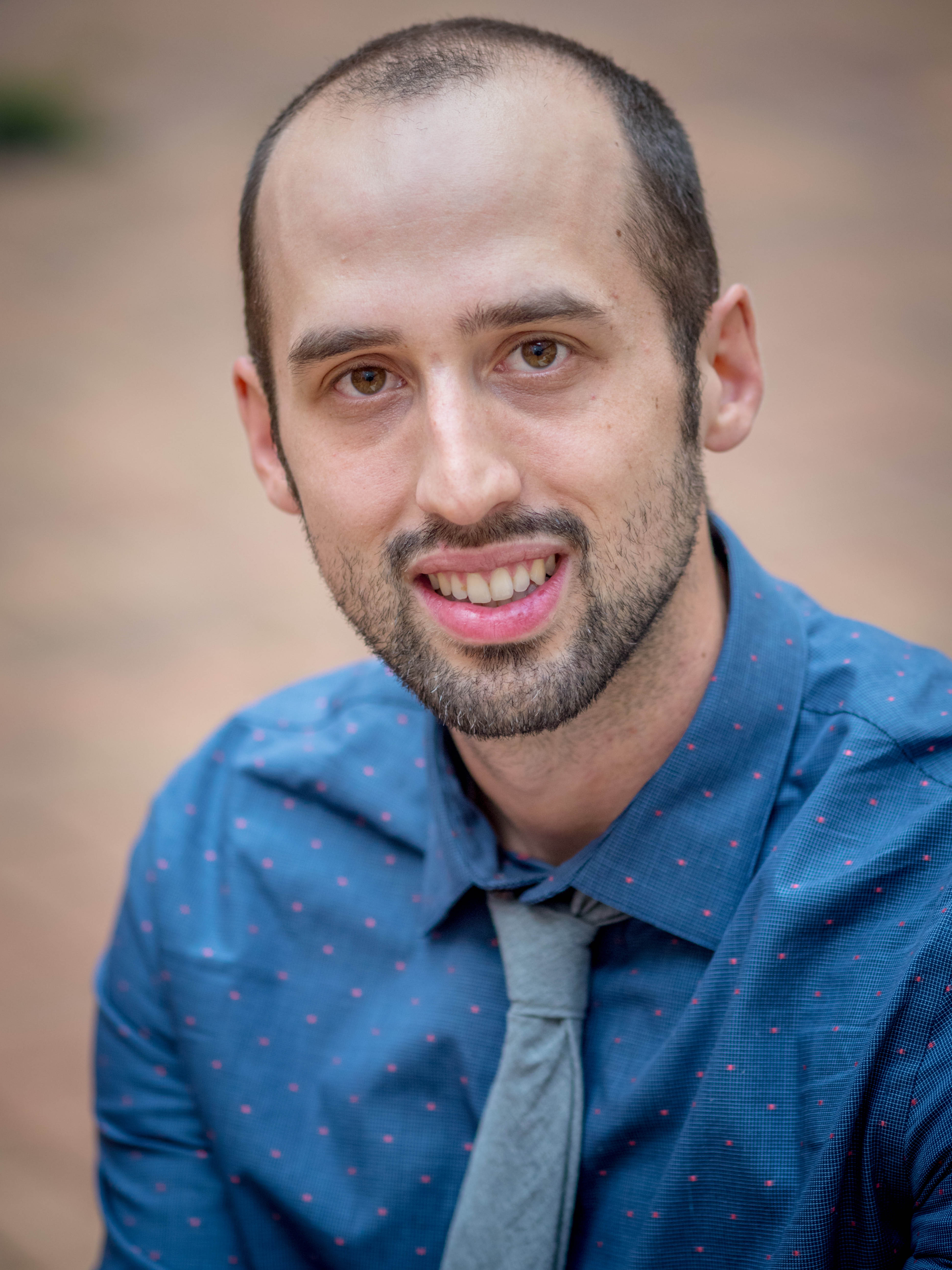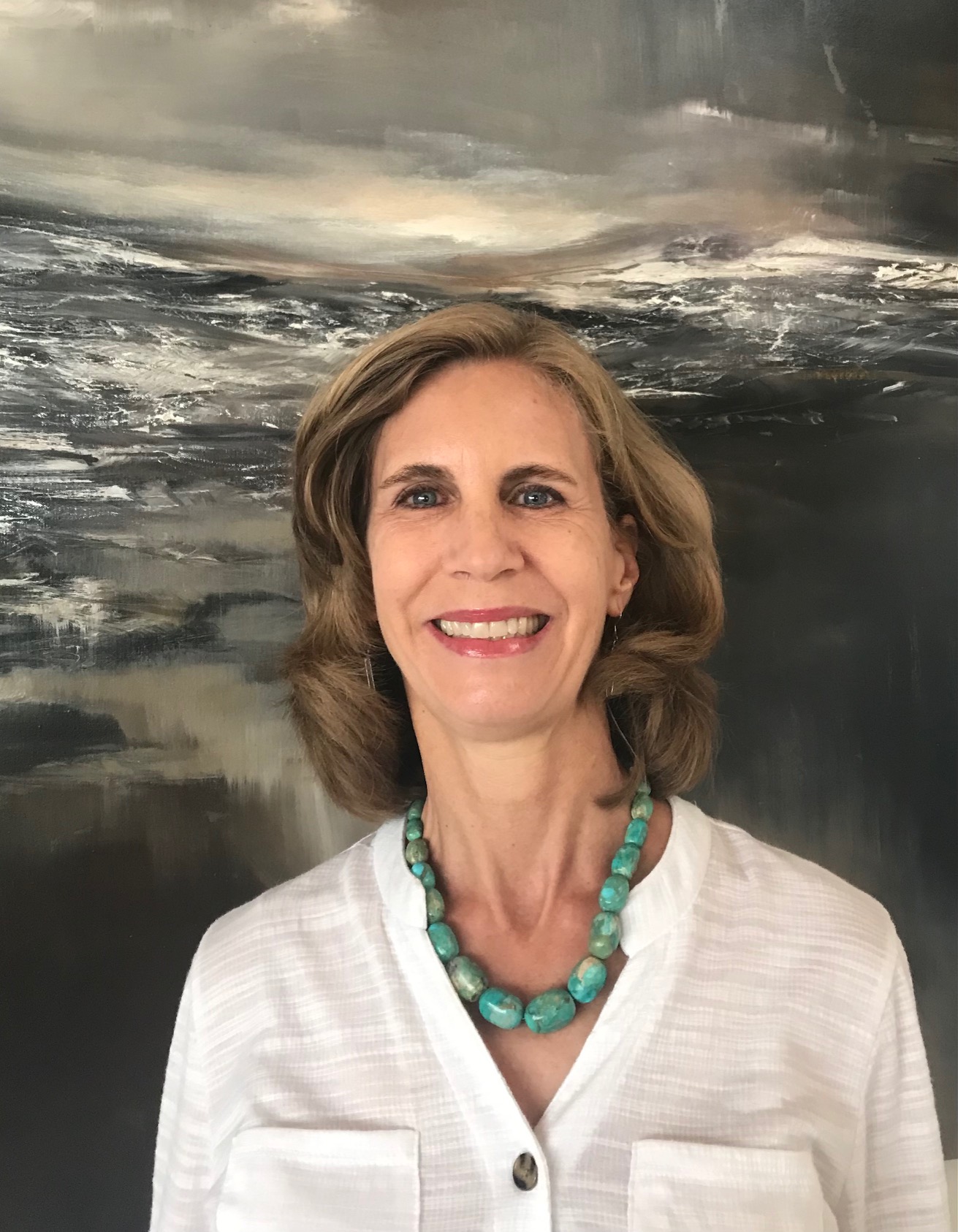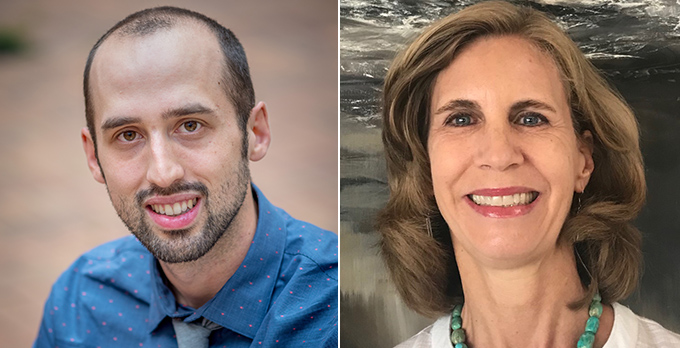Two University of New Mexico Health Sciences researchers are heading up cross-campus teams competing to advance in the next round of Grand Challenges.
David T. Lardier Jr., PhD, an assistant research professor in the Department of Psychiatry & Behavioral Sciences, and Rebecca Girardet, MD, professor in the Department of Pediatrics, lead two of 10 teams recently selected for an initial round of Grant Challenges pilot funding.
The Grand Challenges program, launched by President Garnett Stokes in 2019, seeks to bring together collaborators from a variety of disciplines to explore fresh solutions for pressing problems facing New Mexico. The new projects, which cover topics ranging from green energy to literacy and indigenous child development, were selected by a steering committee.
“This past winter, the entire Grand Challenges program was re-envisioned,” said Anita Grierson, Grand Challenges Operations and Interdisciplinary Research Development director. “A lot of the motivation of that was to be more inclusive, to include more topic areas, to include the university more broadly.”
“The Grand Challenges program is now three levels,” she said. “Level I will focus on team formation, team building and strategic planning. Level II will focus on implementation of planning and capacity building. Level III gives Level II teams options as to where they go.”
The hope is that when teams reach Level III they will have secured sustainable extramural funding to continue their work, Grierson said.
Lardier’s group will receive Level I funding to focus on mental health and suicide prevention interventions on UNM’s campuses.
“The purpose of the Level I funding is to essentially just bring people together and develop larger goals surrounding how to approach the overall aspiration of intervening and reducing negative mental health outcomes,” he said.
His co-convenors on the project include Stephanie McIver, PhD, interim executive director of the UNM Student Health Clinic, Monique Rodriguez, PhD, assistant professor of Counselor Education, and Veronica Salcido, senior program manager at the UNM Valencia branch campus.
Sub-group participants include Annette Crisanti, PhD, vice chair for research in the Department of Psychiatry & Behavioral Sciences, Kristopher Goodrich, PhD, professor of Counselor Education and Ashley Martin-Cuellar, PhD, a visiting lecturer in Counseling and Family Studies.

Living in a state with higher rates of suicide and mental health crises and us being the flagship university in that state, we’re in a position to do good work
“Living in a state with higher rates of suicide and mental health crises and us being the flagship university in that state, we’re in a position to do good work,” Lardier said.
Girardet, who specializes in diagnosing child abuse, heads a project to implement strategies to prevent child maltreatment in New Mexico.

The problem of child maltreatment is near and dear to me. It’s quite a pervasive problem in New Mexico, unfortunately, with significant social and economic cost to the state.
“The problem of child maltreatment is near and dear to me,” she said. “It’s quite a pervasive problem in New Mexico, unfortunately, with significant social and economic cost to the state.”
The World Health Organization and the Centers for Disease Control and Prevention already offer guidelines for preventing child abuse and neglect, but the devil is in the details, she said. “How do we best go about implementing those recommendations? What do we pick first what are the resources, where is the greatest need?”
Her co-convenors include Shelly Alonso-Marsden, PhD, an assistant professor in the Department of Psychiatry & Behavioral Sciences, and Sara Nozadi, PhD, an assistant professor in the College of Pharmacy.
Sub-group participants include Melody Avila, DNP, RN, FNP-BC, assistant professor in the College of Nursing, Kira Villa, PhD, associate professor in the Department of Economics and Leslie Strickler, DO, professor in the Department of Pediatrics.
The three original Grand Challenges identified in 2019 tackled sustainable water resources, successful aging and substance use disorders. The latter is moving to emeritus status because it has already generated sufficient ongoing funding, Grierson said.
